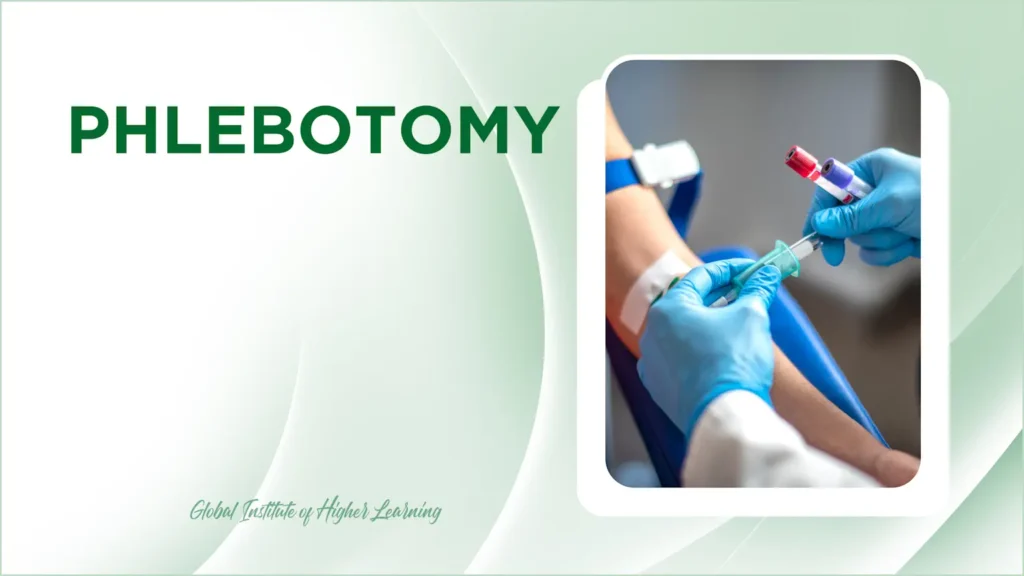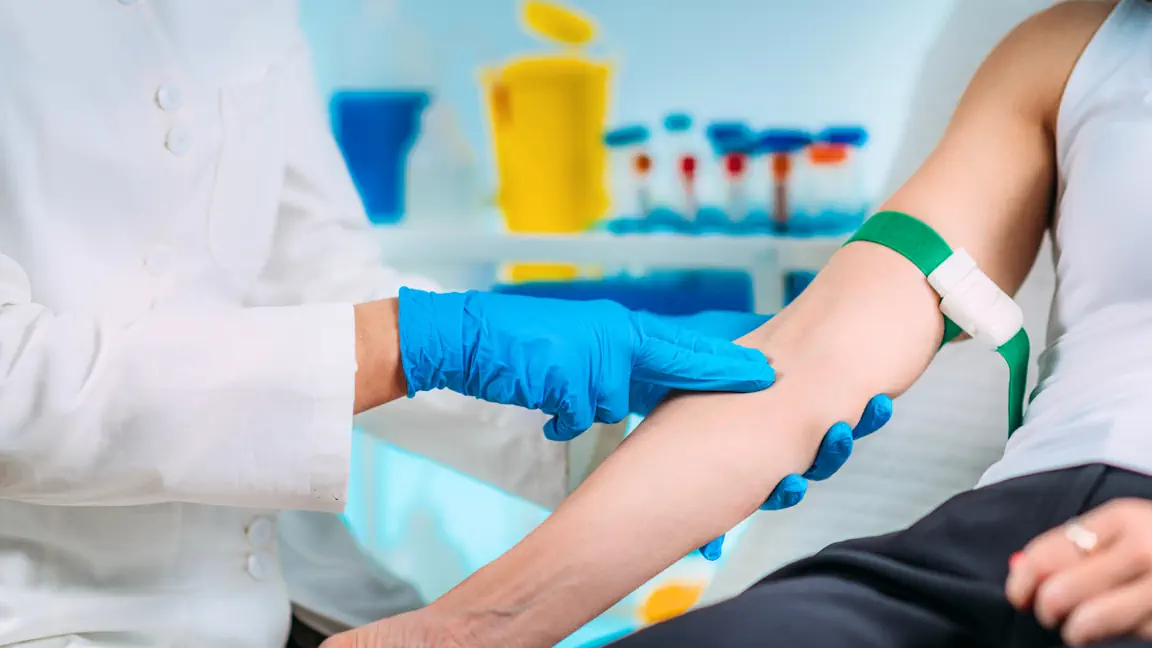
A phlebotomy class is a must to become a phlebotomist. The class consists of comprehensive training and certification.
Phlebotomists are specialized healthcare professionals. If you are interested in a rewarding career in the healthcare industry, a phlebotomy technician is a great choice.
In this article, I’ll review a few important points. Let’s dive in.
What Is Phlebotomy?
Understanding the Role of a Phlebotomist
A phlebotomist plays an essential role in healthcare settings. They ensure the safe and efficient collection of blood specimens from patients.
The purpose of these blood specimens includes medical testing, transfusions, donations, or research.
They must interact with patients, locate suitable veins, and perform venipunctures. They must extract blood samples with minimal discomfort to the patient.
Requirements for Becoming a Phlebotomy Technician
Individuals must complete a program or course from an accredited institution. This is necessary to become a phlebotomy technician.
You need a high school diploma or equivalent to enroll in a training program.
Potential Career Paths in Phlebotomy
Individuals can explore various employment opportunities after completing training and obtaining phlebotomy certification.
Hospitals, laboratories, blood donation centers, and other healthcare facilities provide employment. Some may also choose to advance their careers.
They can specialize in areas like pediatric phlebotomy. They may also become phlebotomy instructors.
Phlebotomy Class Schedule
Finding a Convenient Phlebotomy Training Schedule
Find a program that suits personal commitments and preferences. Many institutions offer flexible options for diverse student needs.
They include daytime, evening, part-time, and weekend classes.
Duration and Time Commitment
Phlebotomy courses vary in duration. The length depends on the specific program and its curriculum. It can range from a few weeks to several months.
Students must dedicate hours to classroom and practical training. They need it to get phlebotomy skills and knowledge.
Options for Part-time or Weekend Phlebotomy Courses
Part-time or weekend courses can be a suitable option for individuals. They balance other responsibilities, like work or family commitments.
These classes offer the flexibility to pursue training without disrupting existing obligations.
Choosing the Right Phlebotomy School
Finding Accredited Phlebotomy Programs
Choose a phlebotomy program approved and accredited by relevant organizations or state authorities. This is essential.
Accredited programs ensure students receive quality education. They also provide adequate preparation for their phlebotomy careers.
Comparing Curriculum and Instructors of Phlebotomy Courses
Reviewing the curriculum and instructors’ qualifications is beneficial when researching phlebotomy schools.
A well-rounded curriculum is vital for comprehensive training. It should cover anatomy and physiology, phlebotomy techniques, and clinical experience.
Enrollment Process and Admission Requirements
Prospective students should inquire about the admission requirements. These requirements include a high school diploma or GED certificate.
They also involve background checks and immunization records. Some phlebotomy schools may also offer information about financial aid and payment plans.
Benefits of Becoming a Certified Phlebotomy Technician
Advantages of Obtaining CPT Certification
Becoming a certified phlebotomy technician (CPT) offers several benefits. It includes enhanced job prospects, professional recognition, and opportunities for career advancement.
Increased Job Opportunities for Certified Phlebotomists
Technicians have more job options in the healthcare field. They can work in various settings, including hospitals, clinics, laboratories, and blood banks.
They have the potential to secure stable and rewarding positions.
Salary Potential and Professional Development as a Phlebotomy Technician
With certification, technicians can expect competitive salaries and potential for career growth.
Also, certified professionals have access to professional development and continuing education.
This allows them to stay updated with the latest advancements in phlebotomy practices.
Hands-on Training and Clinical Experience

Importance of Practical Experience in Phlebotomy Training
Hands-on training and clinical site experience are integral components of phlebotomy education. Students need to develop proficiency in phlebotomy skills.
They can do this through practical classes, simulations, and real-world clinical externships. This prepares them for the profession’s rigors.
Overview of Clinical Externship and Practicum for Phlebotomy Students
Many phlebotomy programs include a clinical externship or practicum. Students perform blood draws under supervision in healthcare settings, gaining valuable experience.
This exposure provides a realistic understanding of phlebotomy practices. It fosters confidence in performing venipunctures.
Developing Proficiency in Phlebotomy Techniques through Hands-on Classes
These classes guide students as they learn and practice essential techniques. This includes venipuncture, proper specimen handling, and patient communication.
Instructors will guide students through the skills and training. This will help them succeed as phlebotomy technicians.
Conclusion
In conclusion, a phlebotomy class is the first step to becoming a phlebotomy technician. These classes provide the necessary education and training to succeed in healthcare.
Students will learn the basic anatomy and physiology of the human body. They will also learn the proper techniques for drawing blood and handling specimens.
After completing an approved phlebotomy program, students can take the national exam to get certified.
Classes meet the requirements the National Healthcareer Association (NHA) set forth. This ensures students are well-prepared for the profession’s demands.
Also, students are required to undergo a TB test to ensure they are fit to work in the medical field.
National certification through an NHA-approved phlebotomy program provides a strong foundation for a successful career.
